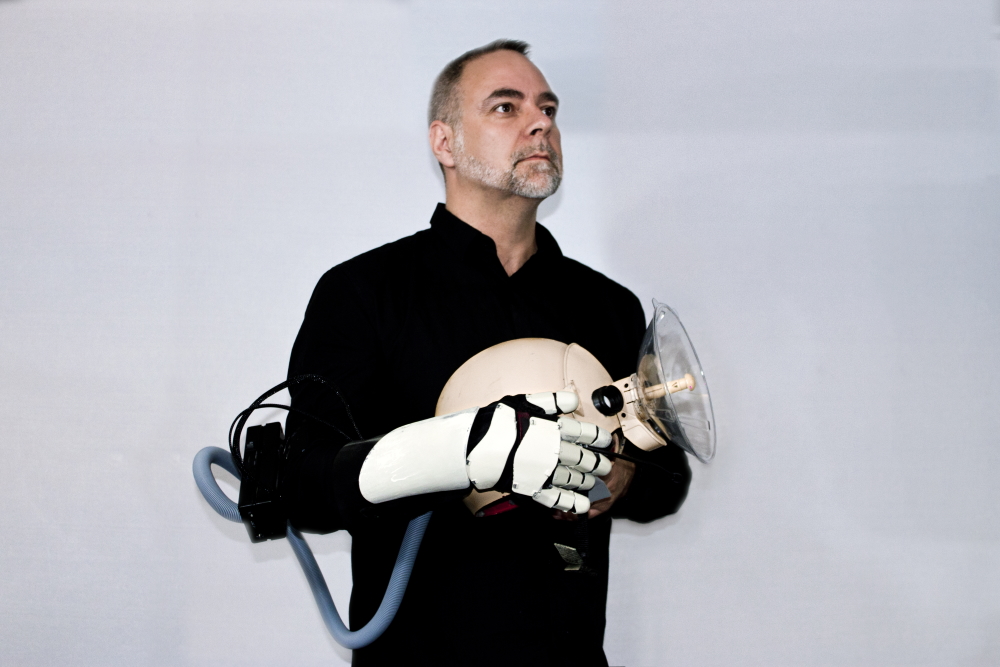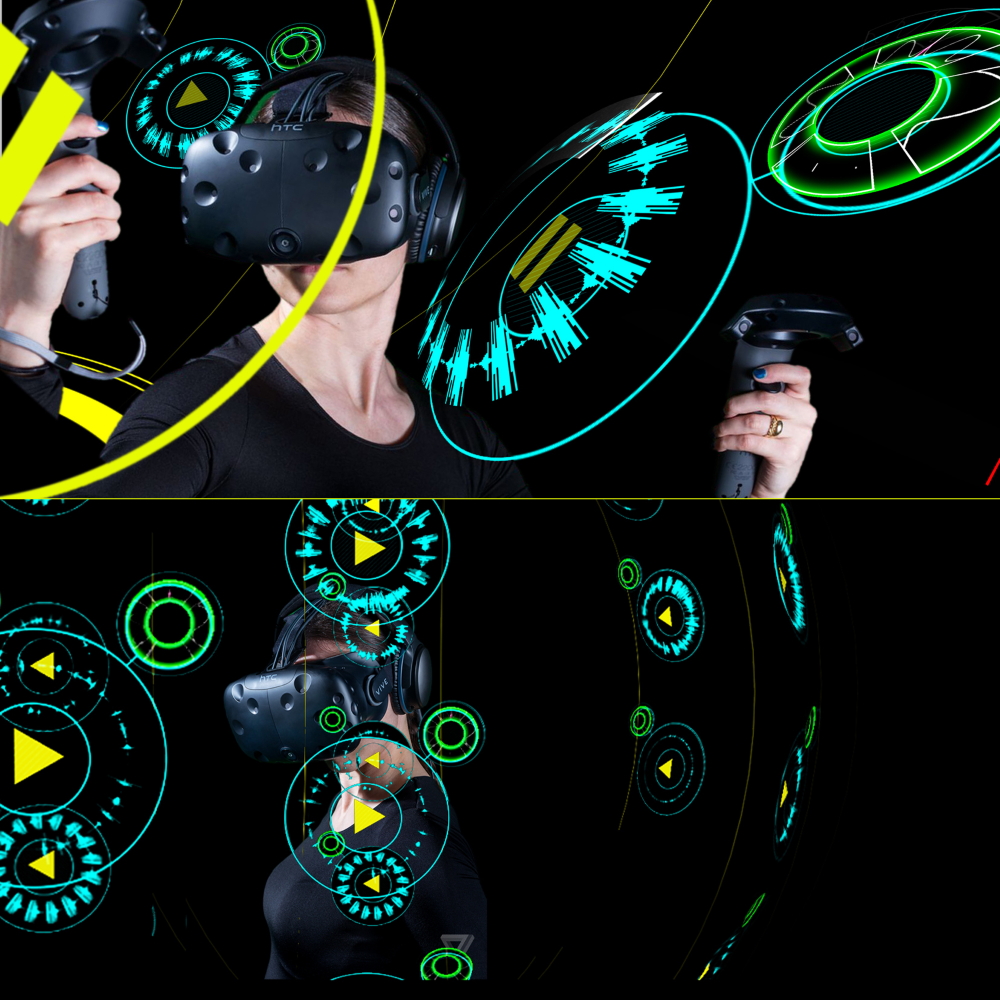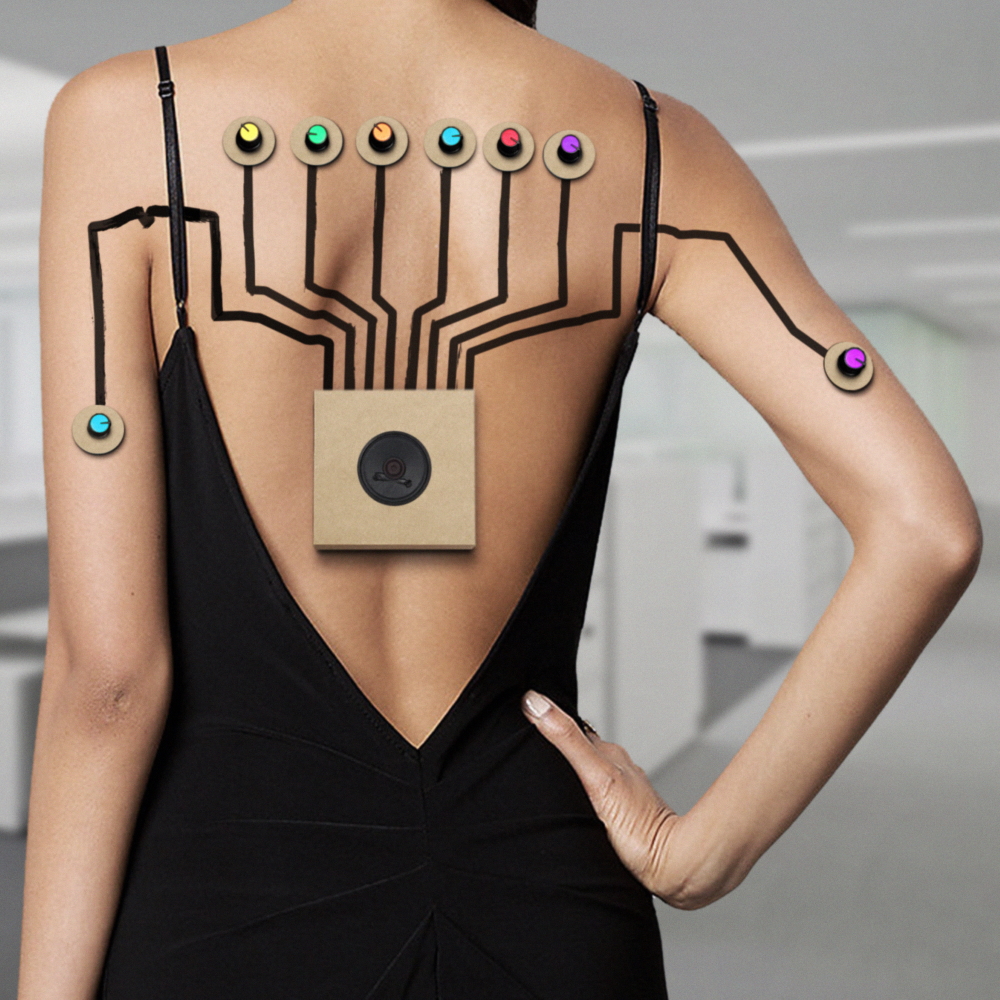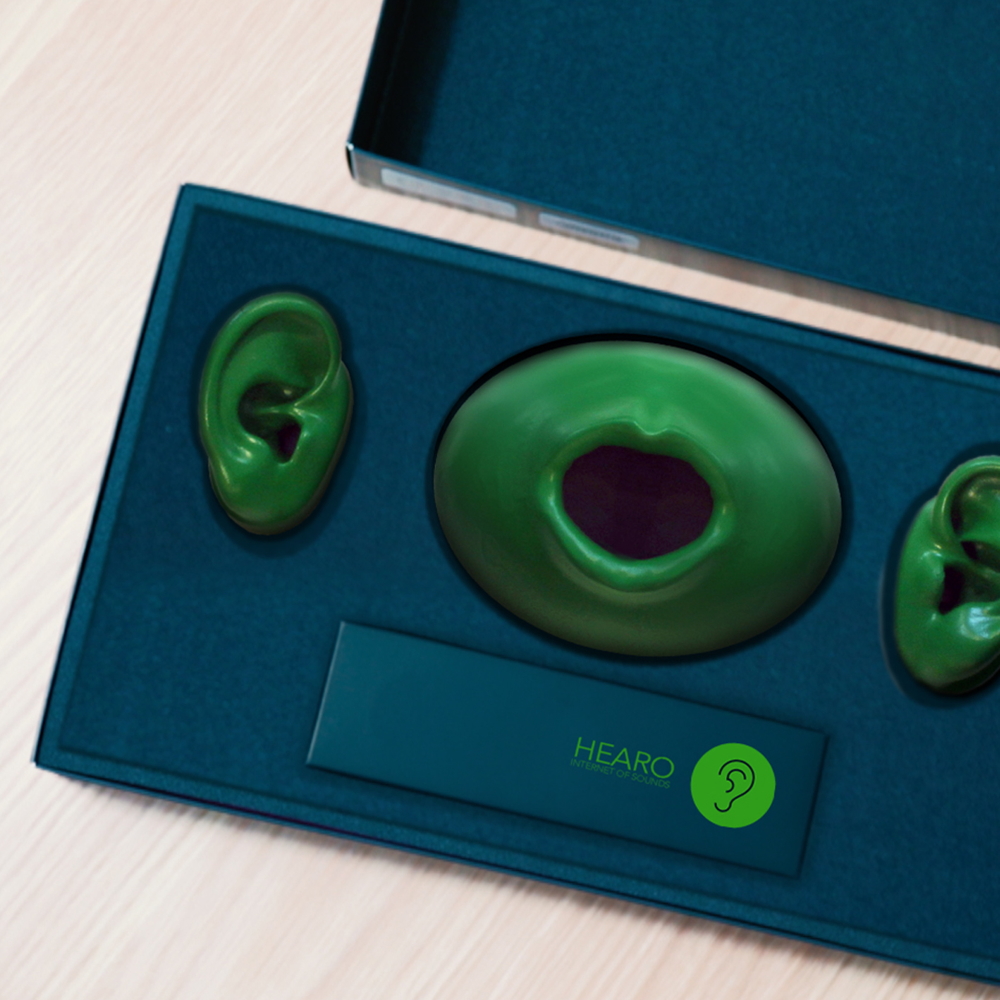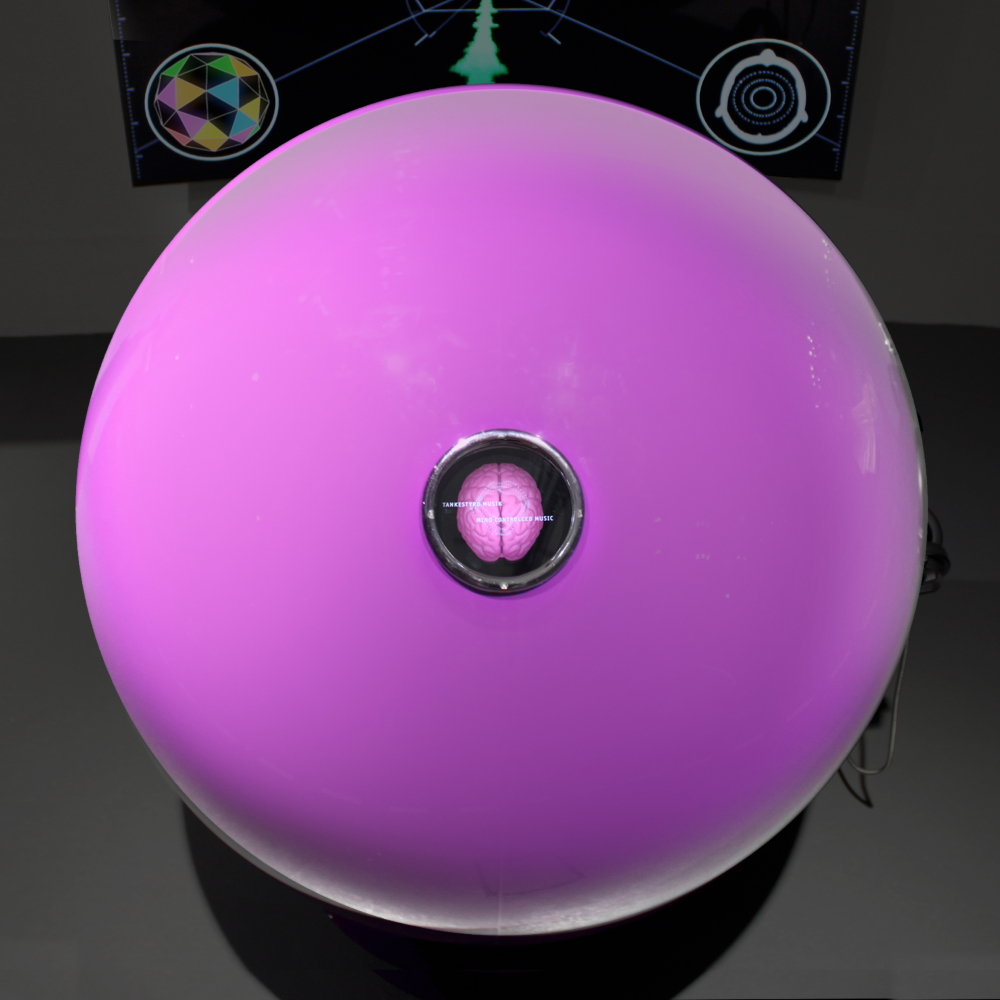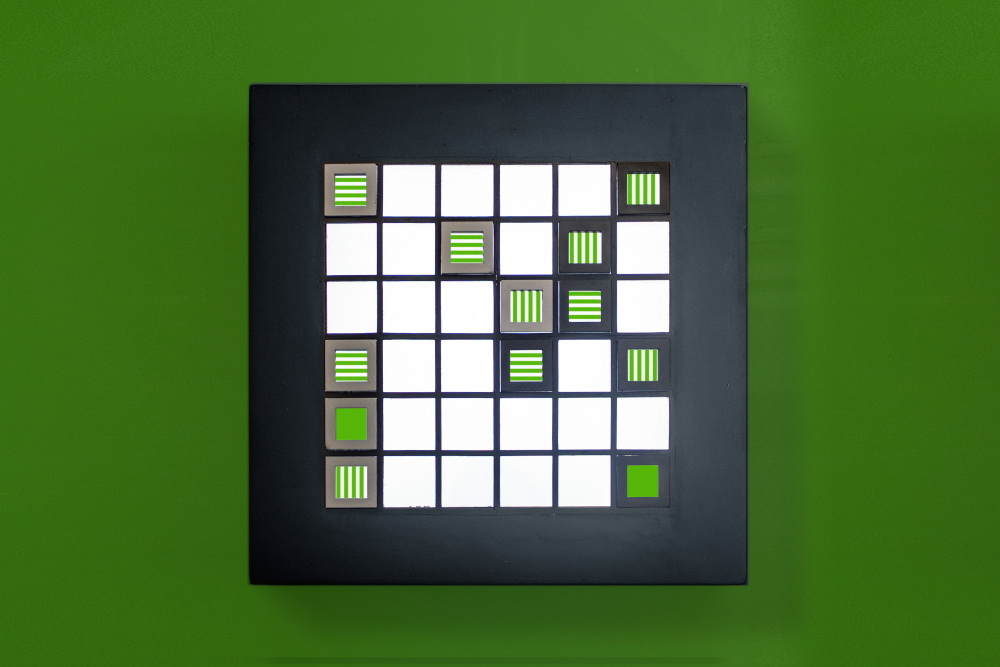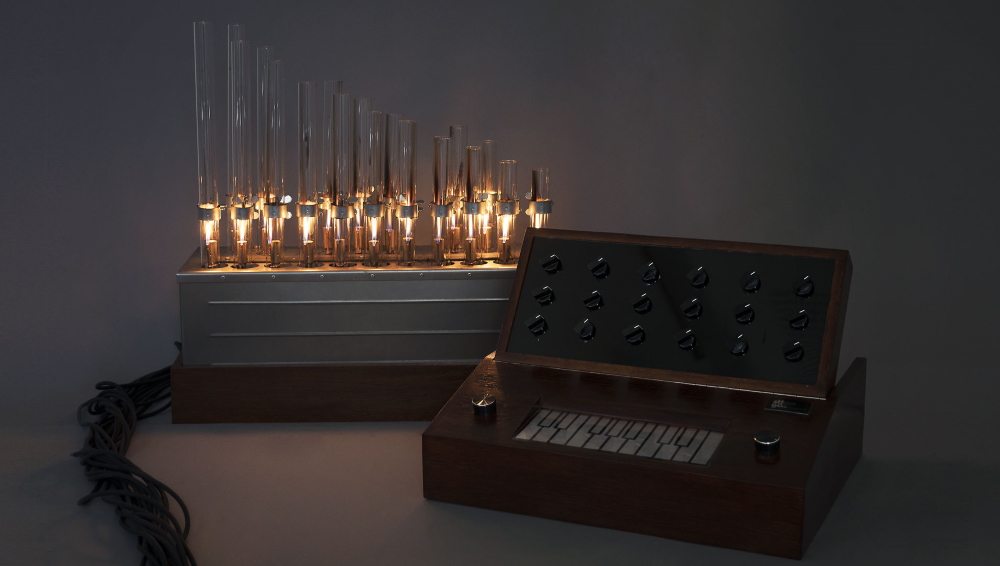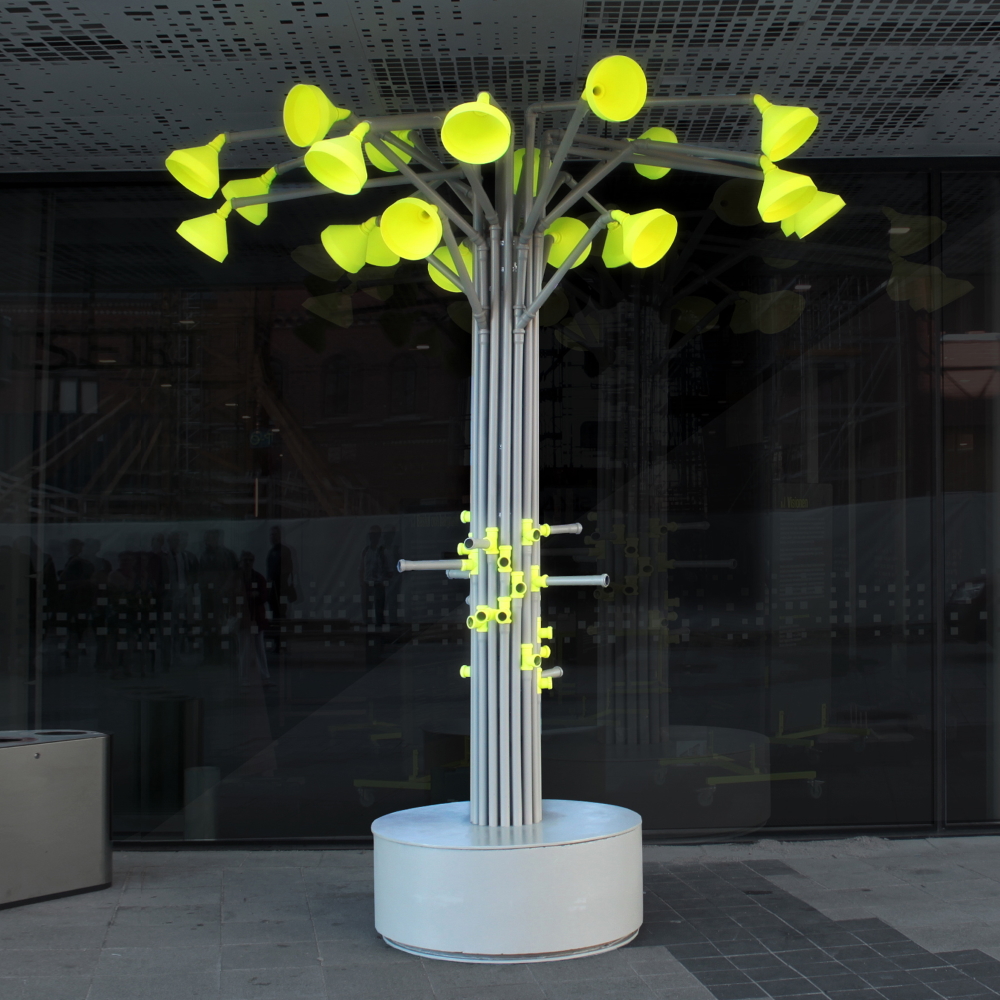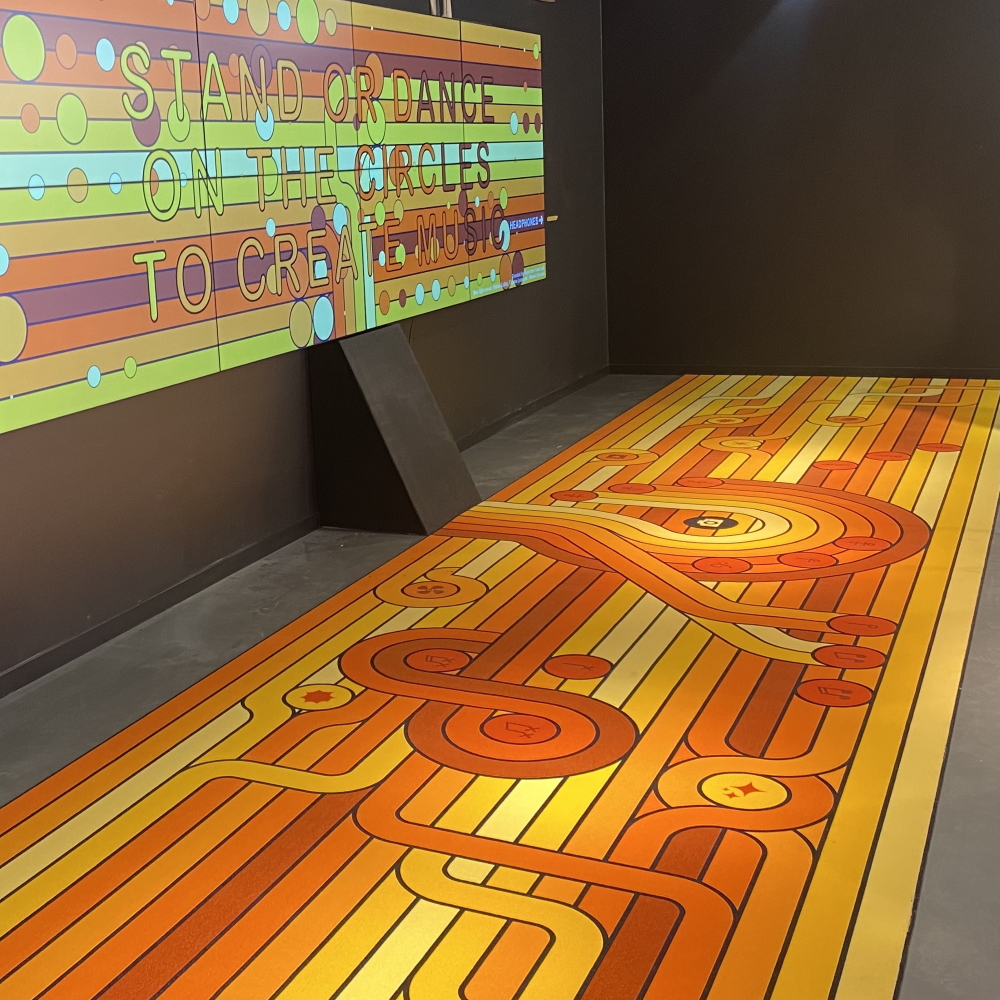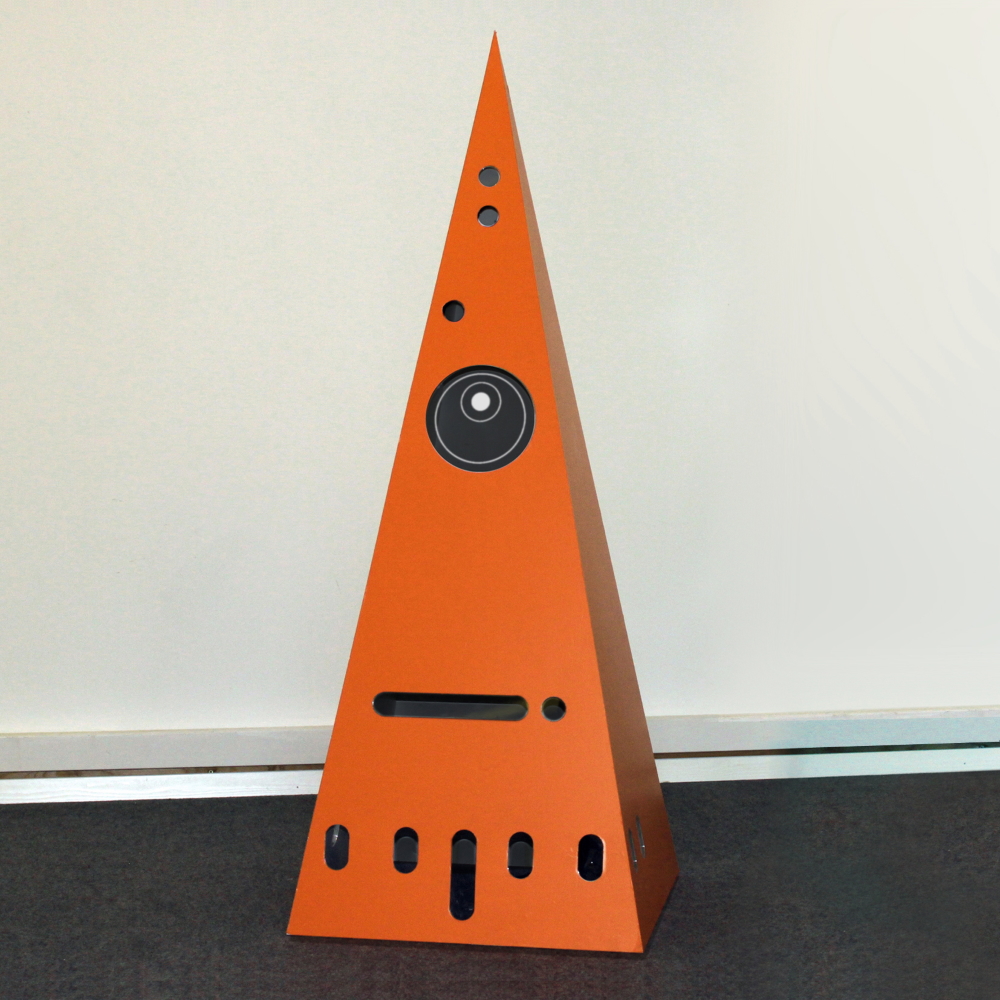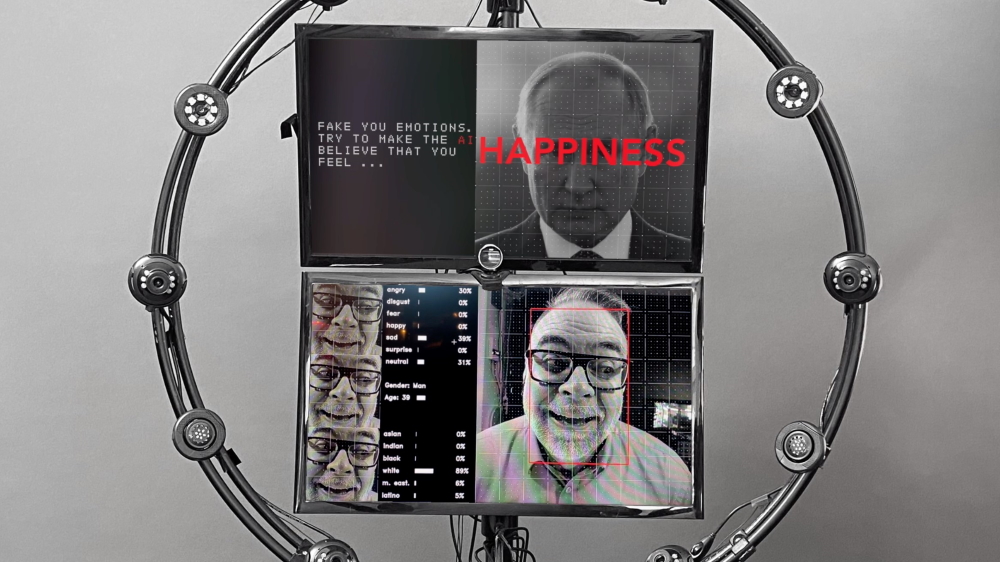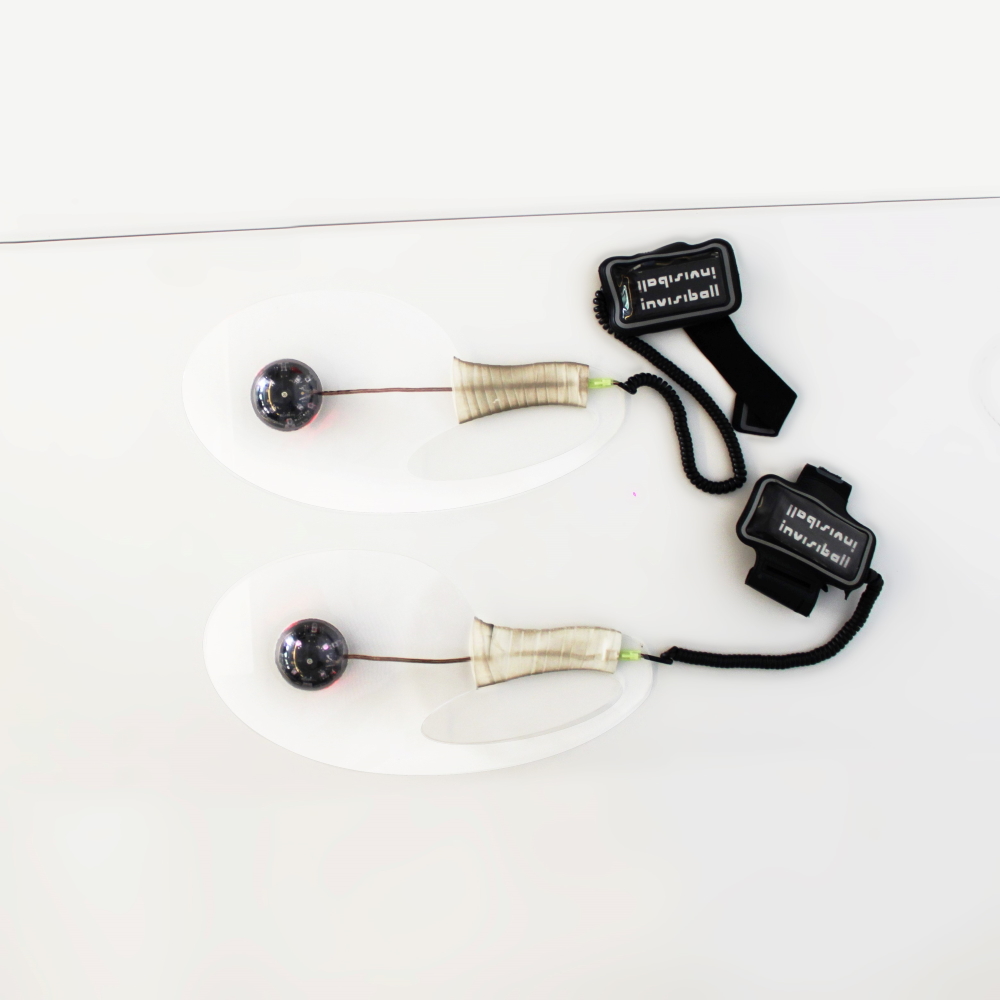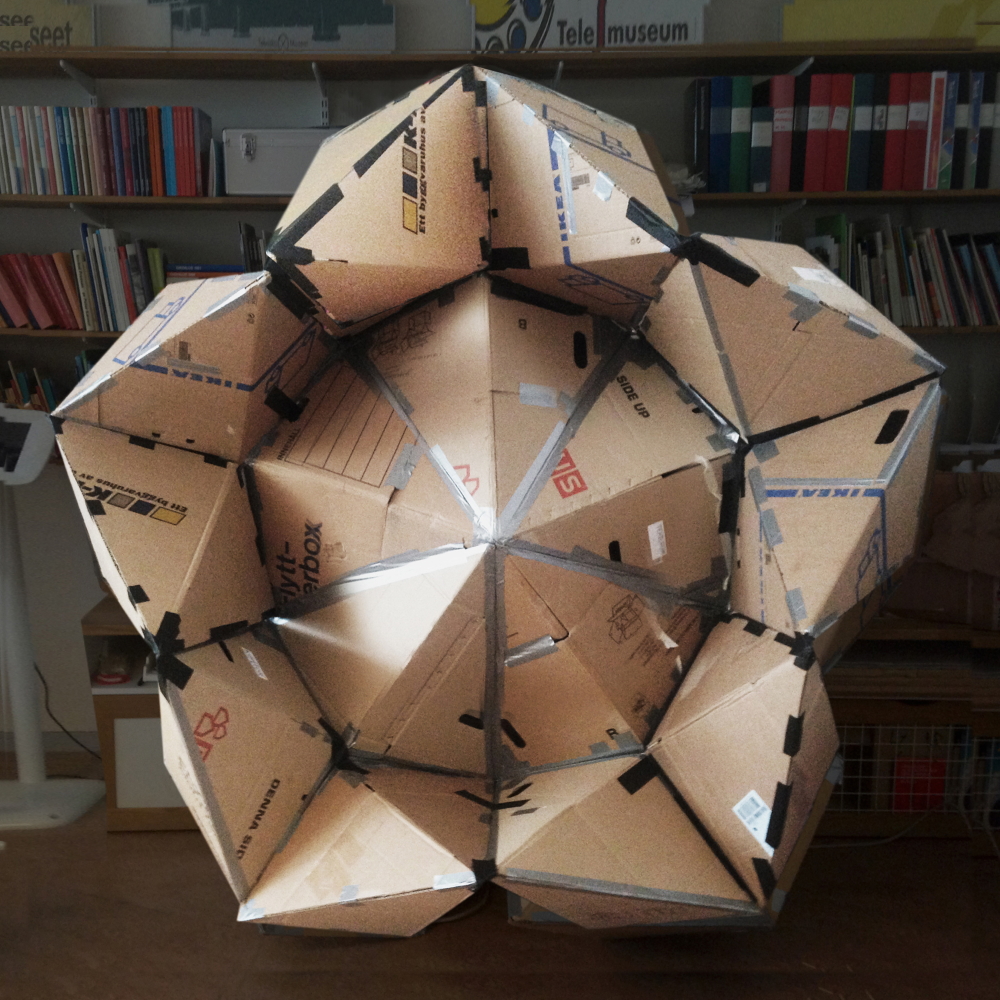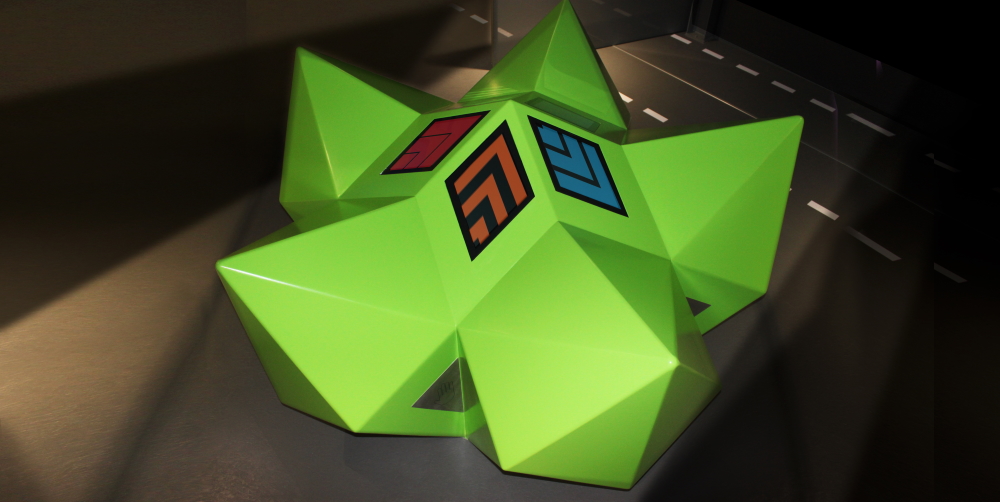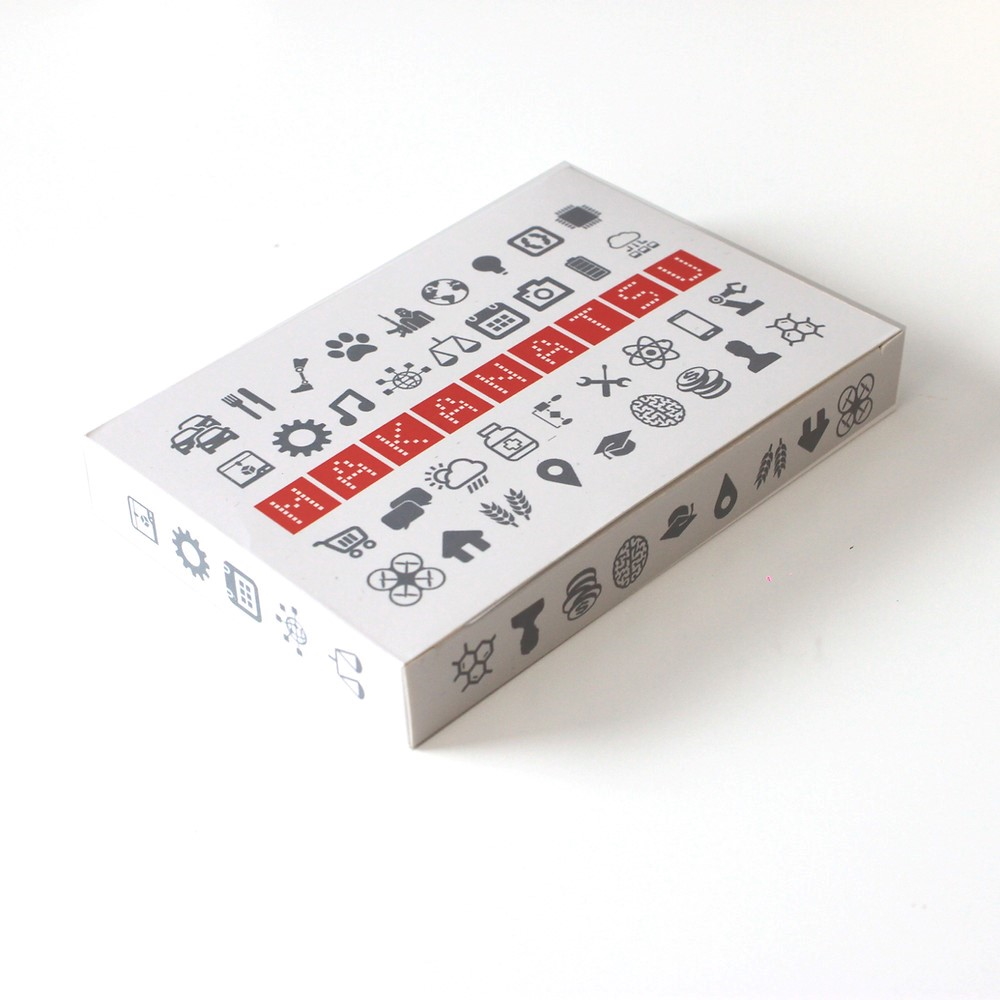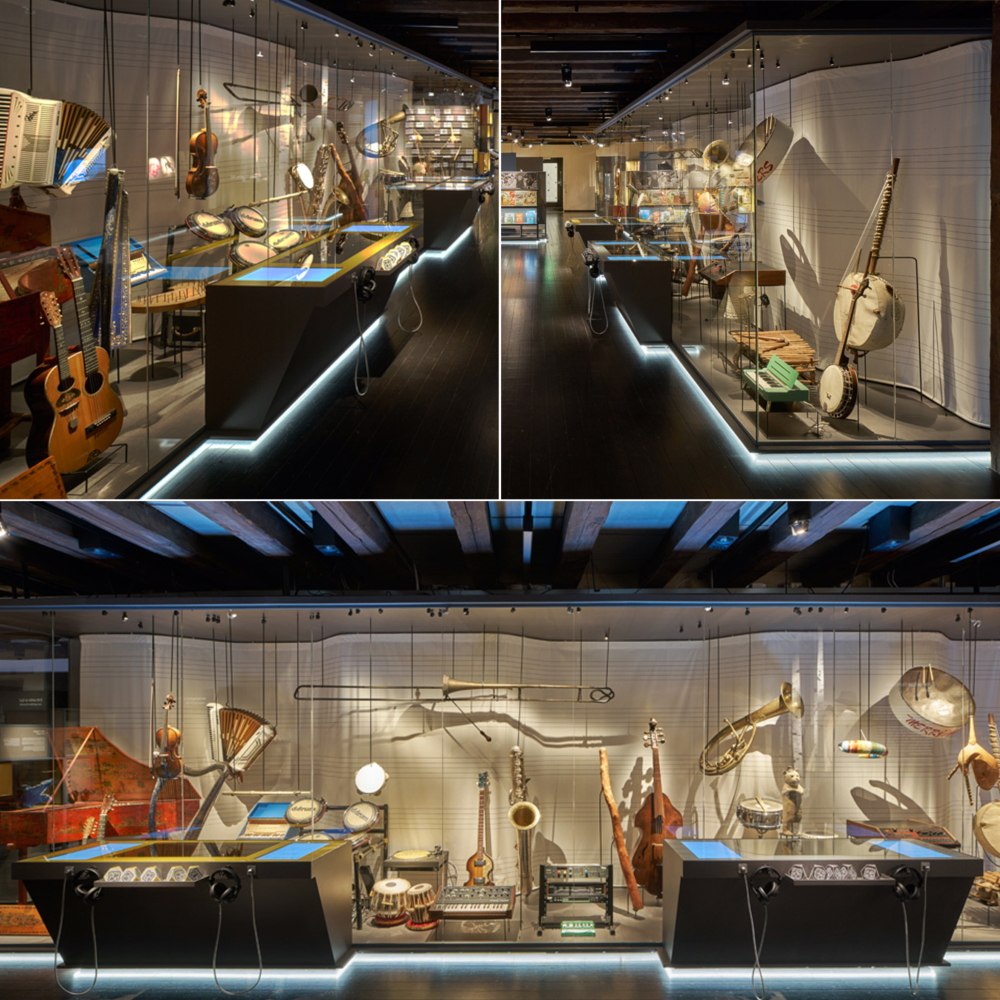Hakan Lidbo
artist / inventor
Sweden
„Ideas. Apps. Games. Robots. Workshops. Education. Interactive. Keynotes. Society. Music. Art.“ This amazing amount of keywords on display at Håkan Lidbo’s website overwhelms the visitor. Even more, if one opens the nine prevailing pull-down menus and is confronted with lots of additional informations, what this native Swede is/was working on. And that’s still not all: He has founded The Rumtiden Idea Lab in Stockholm. The activities of this unconventional creative workspace explore the intersection between new art forms, science, and society in order „to bring totally new ideas into the world that weren’t here before.“
Hakan Lidbo
artist / inventor
Sweden
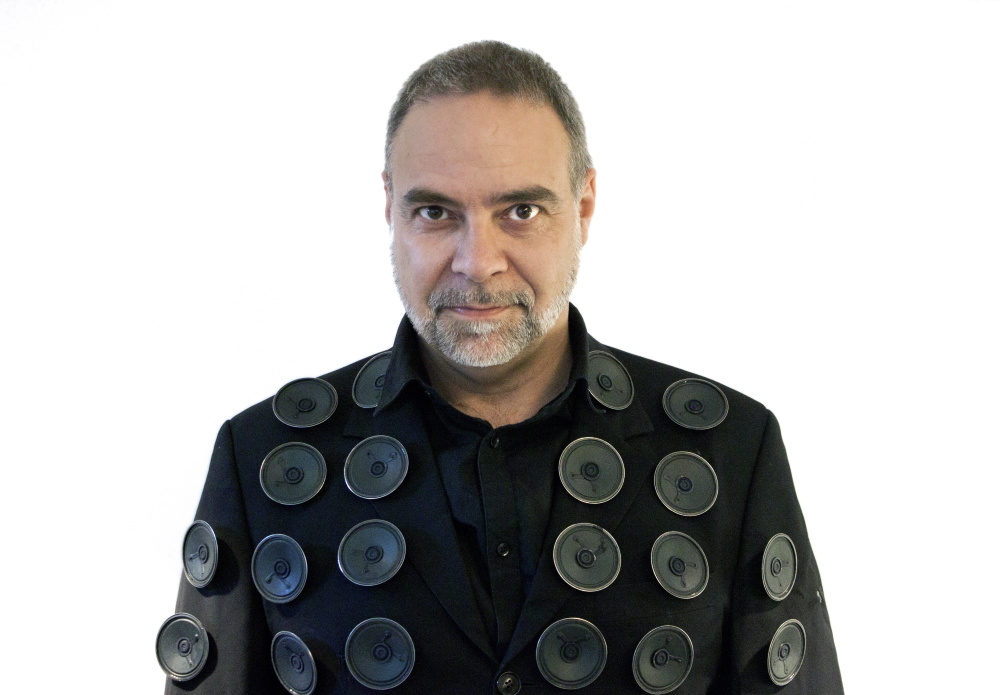
„If it takes an hour to explain what you’re up to, good luck finding someone to listen“, Håkan Lidbo noticed in an interview with designdisciplin.com. Easier said than done, because it’s next to impossible to describe in a few words the widely stretched portfolio of this creative with an inexhaustible energy. Hakan Lidbo (* July 20, 1965 in Malmö, Sweden) has released more than 350 records between 1988 and 2022 under twelve aliases. In the early 2000 he was the fastest releasing recording artist in the world. The music is stretching „from techno and house, via pop to obscure sonic experiments“ (discogs.com). As always Håkan was good for an original idea like this one in 2012: rounding up 57 producers to collaborate on one House track called „World World Record“ with the goal set to enter the Guinness Book Of Records. Among his influences Håkan cites diverse musicians like Miles Davis, Herbie Hancock, György Ligeti, Igor Stravinsky and Kraftwerk. Looking at Lidbo‘s musical output, the aim is obvious and could almost be a quote from his yardstick, the influential artist and writer Marcel Duchamp: Constantly re-invent yourself, never stick to the same thing! „With the multimedia project 60 01 60, Håkan Lidbo approached the concept of time on an acoustic and visual level together with a group of artists. The project consisted of sixty fragments of sixty seconds, presented in music, choreography, graphics, fashion and film“ (laut.de). In „The Music From the Future“, a collaboration featuring Swedens National Radio and the consulting/research company Kairos Future, 13 possible future scenarios in close or far were imagined, highlighting different aspects of different trends in different possible futures. These were presented to 13 artists who created the music, the way it will sound in each given future. Besides that Håkan Lidbo wrote the score to a 19th century ballet for the Copenhagan Radio Symphonic Orchestra.
For a workholic like him with an seemingly endless wide horizon that can’t be it, because if he was just here, he is there again now. That means presenting a nationwide Swedish radio show and being involved in a series of conceptual projects. In 2017 Håkan Lidbo created a technology for Kenyans to enjoy and explore traditional music of their country that is on the brink of extinction. The virtual interface is called Music Sample Bar. It brings life to instruments with tactile interaction controlling loops, effects, graphic plus light and was launched at the Swedish Embassy in Nairobi. Excursions like these shouldn’t distract from all the other projects of the man, who has worked on Swedish Expo 2021 in Dubai, outlines on his homepage. To just pick a few out of the various sections:
1. „Tetra House“ is a project (developed in cooperation with Iranian architect Farzaneh Farkish) that address one of the most difficult problems that architects have to deal with - namely gravity. Because of gravity we can’t sleep in the ceiling or have dinner on the wall – and most of the space in our houses remains unused. Tetra House solves this problem as you can flip it in 4 different orientations. A limited 30 ft 2 floor space becomes a 4 room flat at 120 ft2; kitchen, living room/workspace, bedroom and a shower.
2. "Slime Mode Chess": This game is a collaboration between one of the most simple intelligences on earth - and the most advanced one. Slime mold and humans. In this game, s small colony of slime old is placed in the middle of each petri dish. Once a day the players can place one piece of oat (their favourite food) at any of the dots inside the petri dish. When the slime mold connects to the oat, the piece may move in that direction. The topic of the game is to take the opponents pieces. Due to the slow movement of slime mold, the players can move their pieces once a day. The project was nominated for „iGem Synthetic Biology Art Prize 2019“.
3. "Makanatsu" is a game for 3-15 players that re-invents how innovations are invented - a unique training tool for creativity.
4. And believe it or not: The former student of Interstellar Communication at Lund University even offers an „alienlanguagetranslator“!
People with such a creative potential and visions like Håkan Lidbo are urgently wanted by international companies and institutes. To meet the high demand the Swede founded Rumtiden Idea Lab. „It is“, he explains, „a laboratory for studies of future possibilities, where observations, experiments and prototypes result in totally new ideas. Everything could be re-imagined. What could we humans be - except what we already are?“ Answers to this questions interests a wide variety of clients from Carlsberg, Deutsche Telekom, eon, Linkedin to Swedish Institute, Volvo, Volkswagen and many more.
On mastodule.eu the widely prolific and awarded artist is quoted with three remarkable sentences: „Imagination is the most important of human abilities. And the most poorly exploited. If you want to be creative, to be an inventor, you have to practice your imagination with the same persistence as an athlete!“
Håkan Lidbo works and lives with his wife in Stockholm.
Interview July 2022
Visionary jack of all trades: re-imaginative thinking and practicing without boundaries
INTUITION/IMAGINATION
“Intuition is the key to everything“, said internationally acclaimed filmmaker David Lynch („Twin Peaks“). „I think you could have an intellectual ability, but if you can sharpen your intuition, which they say is emotion and intellect joining together, then a knowingness occurs.“ What sparks intuition for you, is it temporary or can it be engaged anytime?
I’m training my intuition and imagination on a regular basis. I have not only designed my workspace to optimise the flow of new ideas, but also I try to apply my work into some sort of economic model where I look at the amount and quality of new ideas as profit and growth. So it’s always present and I think it’s simply a matter of training.
How does intuition present itself to you – in form of a suspicious impression, a spontaneous visualisation or whatever - maybe in dreams?
it presents itself in various situations and it's never switched off. New ideas often emerge when working with some other idea. As a musician I've made a lot of remixes where you take some elements of a song and twist and re-arrange them into something new - and this thinking is often coming back when processing new ideas.
One of the main elements in my art is about imagination as a phenomena. I'm interested in how it works for me personally, but even more how society does its best to supress imagination throughout education and all aspects of life - trying to imagine what the world would be like if this wasn't the case. I'm often amazed how little imagination we humans seem to have, looking at history and noticing how many of the fundamental structures in modern societies are exactly the same as in the very first human civilisations.
About 20 years ago, I had an epiphany when I noticed that my inner critical voice, that had been nagging all through my life, had turned silent. So from then I don't judge any ideas as stupid or impractical. They all have equal value and needs to be saved for possible future needs.
Will any ideas be written down immediately and archived?
Mostly drawn in a note book or recorded as voice memo, then sorted into folders within different fields of ideas. often including a folder called "inspiration" and one called "visualisations". My computer is full of folders that I scroll through every now and then.
Are great ideas based on intuition and do they reveal themselves in a kind of clear as well complete version that just has to be realized? Or is it endless trials and errors (after the first spark) that result in constant developments up until the final result?
I believe that the artistic process of ideation and developing of new projects is superior to the industrial process. I believe that failure, chaos and intuitive navigation is the process that cold solve some of the most alarming problems the world face today.
What if there is a deadline, but no intuition? Does the first fuel the latter maybe?
Deadline or no deadline doesn't make much difference to me. I 'm confident that the best possible ideas will emerge if I only use intuition and believe in failure and uncensored thought processes to reach the goal or generate the best solution. In fact I regard all my projects as training imagination, just like an athlete spend endless hours on the race track or the gym.
INSPIRATION
What inspires you and how do you stimulate this special form of imaginativeness?
I’m inspired by everything me, the physical world as well as the work of ideas. I’ve also been involved in many different projects, stretching from art, music, literature, games, racism festivals, film to architecture, urban planning etc. This makes it easier to think between the disciplines and to explore the intersections. But the one ability that is most important to train with strict discipline is your own curiosity.
How do you separate the good from the bad and which ideas are worthwhile to be explored further or whether one idea has the potential of being outstanding really?
First we have to agree what a new idea is. We often hear the word innovation used to describe necessary development. Companies call themselves innovative when they make their services digital. But that's not innovation, not more than a farmer that swapped the horse for a tractor 100 years ago, it's just development. Innovations and new ideas should by definition be something that didn't exist before.
So a good idea is something that didn't exist before. And also I like to define good ideas if they serve multiple purposes, intersecting several fields of functions. A good idea can be a tool for education, something that gives you new insights about yourself and the world around you, something that is beautiful, inspiring, something that show new future possibilities - and can change its purpose over time.
Has it to appeal to you primarily or is its commercial potential an essential factor?
Living and working in a free market, following the algorithms of profit and growth, I try to see what I do with a different perspective, the uniqueness of the ideas is the capital and the number of new ideas is the growth. If an idea has a commercial potential it's mostly not a new idea. Unfortunately there is very little place in the free market for new ideas.
Do you revisit old ideas or check what colleagues/competitors are up to at times?
I often look at my old notes for inspiration or to pick up where I left. I often look at other artists’ or engineers’ work, but then on a very shallow level. Sometimes I misunderstand what the project is actually doing, but then new ideas pop up what it could be. Being confused is a very good place to be and the creative brain works as its best on those situations. I believe that the most important thing art can do is to make us confused.
CREATIVITY
Which time/place/environment suits your creative work process the best (tranquillity or pressure) and which path do you take from theory/idea to creation?
I've created a place called "Rumtiden Idea Lab" which is designed to optimize the process of new ideas. The furniture and tools are totally modular so it can be re-built and remixed very quickly, following a strict system of equal measures. It's very much like working inside Lego. Almost all so called "creative" places look the same; either it's a table, chairs and a white board and all creativity happens inside people's heads - or it's the hippie-like chaos of an artist's studio where you can't separate projects from piles of trash. My lab is an attempt to use a strict structure where every surface is a potential place for art and new ideas. but it's not only the structure in which we work, it's also the people that I invite to work there. We have a mix of visual artists, musicians, engineers, programmers and designers and whatever problem you run into, there is likely someone there with the knowledge help.
What is better in the realization process: speed and force creativity i.e. grasp the magic of the moment, or a slow, ripening process for implementation/elaboration?
For me speed is important. I have an allergy against boredom, so I deliberately make projects that are mot too big. I look at my success not in money or clicks, but in the amount of time I do what I'm most interested in doing right then. And that may change from many different projects over one single day.
If problems occur during creativity or one’s stuck even, how can these be solved?
One option is to give up. Another is to ask for help. The first thing I do, regardless of what problem I run into, is as asking someone who knows more than myself.
How important are self-doubt and criticism (by others) during such a process i.e. is it better to be creative on your own, only trust your own instincts, or in a team?
If you work for a client criticism is often built in the process, but if I work on projects from my own unique ideas I tell myself that failure is always an option - and if it doesn't turn out as I imagined, it can always be art :-)
Should a creative always remain true to him-/herself including taking risks & going against the flow or must one, for reasons of (commercial) survival, make concessions to the demands of the market, the wishes of clients and the audience’s expectations?
An artist can be both - be too radical or too much sell-out. To make meaningful projects within the free market in which we all work is about navigating - and that is an art in itself. I respect those who master this navigation as much as I respect those who won't compromise.
The definition of success for any artist is when you reach the point when you have nothing to lose. When you can say "fuck you" to a client when a project is going in a direction that you can't accept, when you can make projects that you know will be unsuccessful or even ridiculed. Knowing this should give you the strength to navigate in a world that often is dried out on new ideas.
How is innovation still possible if one has established a distinctive style and, just in case, is it good to be ahead of one’s time even one hazards not being understood?
I believe in training your idea making skills - and to reflect on your own development, like an athlete checking the lap time over years of training. Doing the same thing over and over is probably the best recipe for success but that also means that you have stopped innovating that your ideas don't produce new ideas. It's nothing wrong with that but it's important to be true to yourself, even if you're getting increasingly successful.
When does the time come to end the creative process, to be content and set the final result free - or is it work-in-progress with an endless possibility of improvement?
I would say 90% of your max capacity. if you're good at something, no one will notice if you put in 90% or 100% of your capacity, but those extra 10% of perfection will take as a long as the making whole project. but this is just my personal way of thinking where my own amusement making the project is as important as the outcome.
In case of failure or - worse - a creativity crisis how do you get out of such a hole?
See above.
SUCCESS
Should/can one resist the temptation to recycle a ‘formula’ one’s successful with?
See above.
Is it desirable to create the ultimate/timeless work, but doesn’t “top of the ladder” bring up the question of “what’s next?” i.e. isn’t such a personal peak “the end”?
Instead of regarding my more ambitious projects as some sort of Magnum Opus, I prefer to see it as training for future projects. I will likely never make a Magnum Opus as the knowledge I gain from that project would probably led me to yet another even bigger project.
MY FAVORITE WORK:
Some of my ideas came more directly from an impulse or intuition than others.
We made a series of helmets that each block a human sense and replace it with a non human super sense, using different technologies. To better understand who we humans might be in the future. (see photo)
Invisible is a tennis game for the blind - or for seeing people blindfolded. You play on a physical court 2x8 meter, loudspeakers in ear hight in the four corners, then you play with physical racket that beams infrared light in all directions. So you play with sounds and music instead of a ball where you can control a ”ball” with physical properties. You can smash or bounce and actually get good at this game. But as a seeing person you don’t stand a chance against a blind.
We made a series of ”Fruit Synthesizers” that only work if you put a certain fruit in them. One of many musical projects that may seem quite pointless, but I would argue that we need objects where we don’t understand the purpose. Call it design fiction, but objects that actually work.
